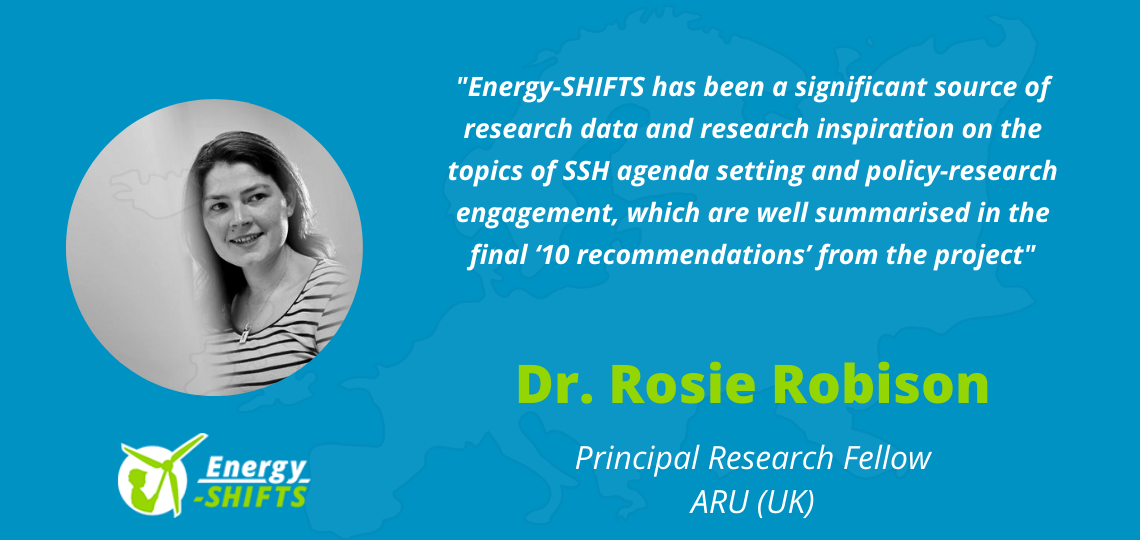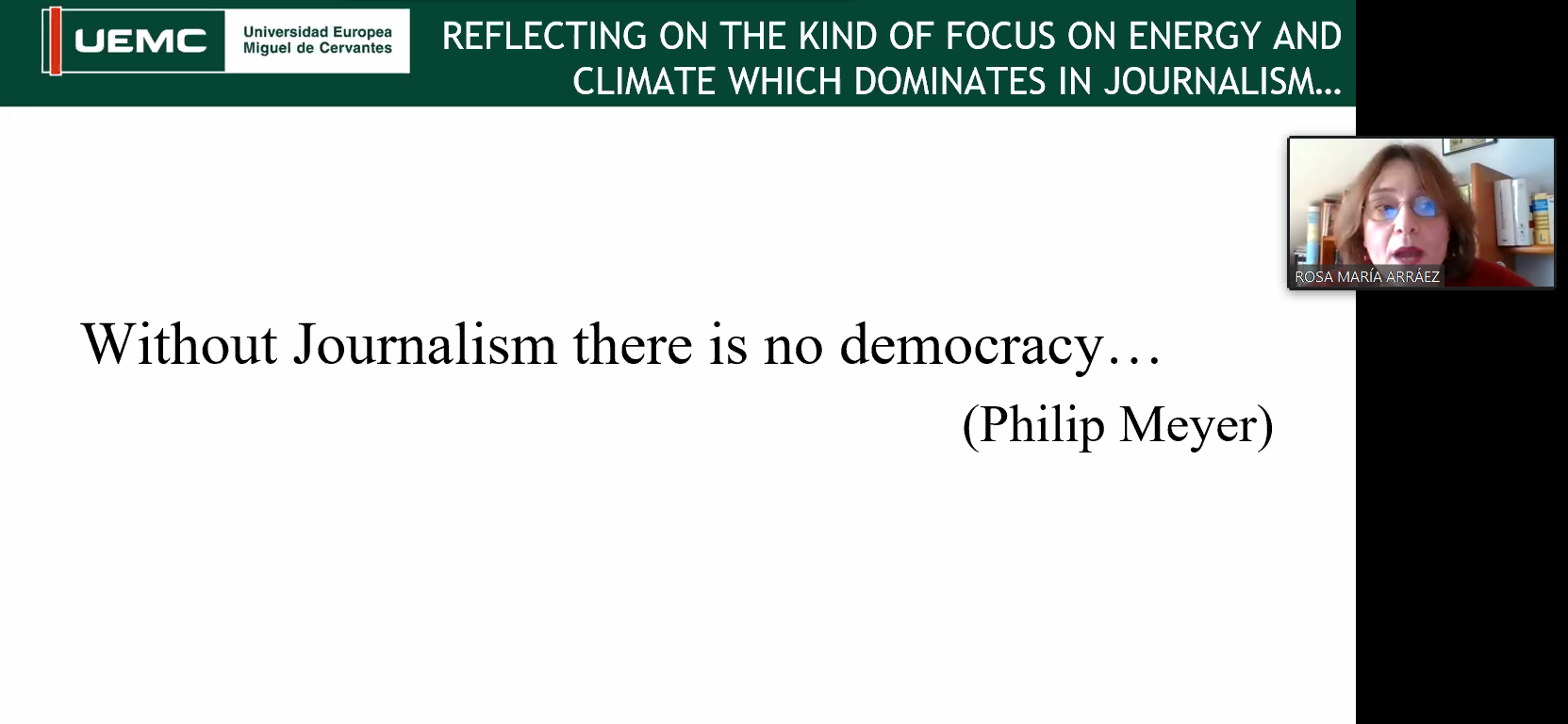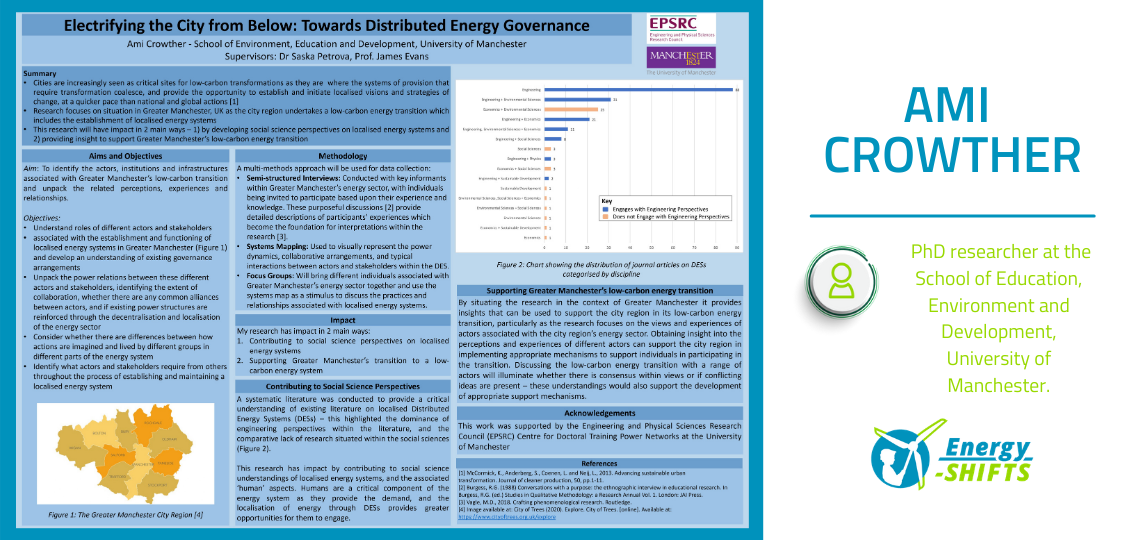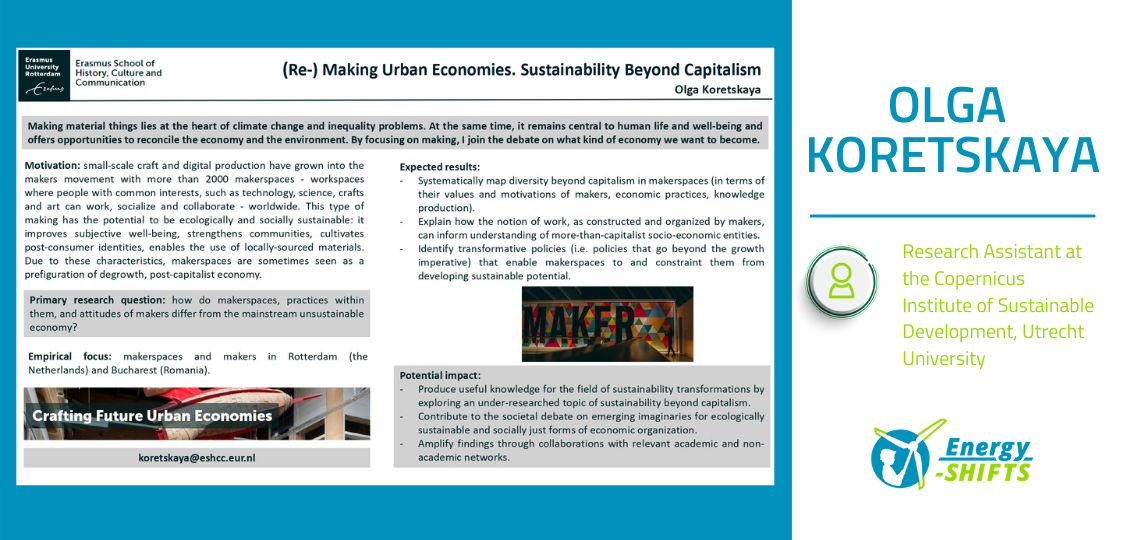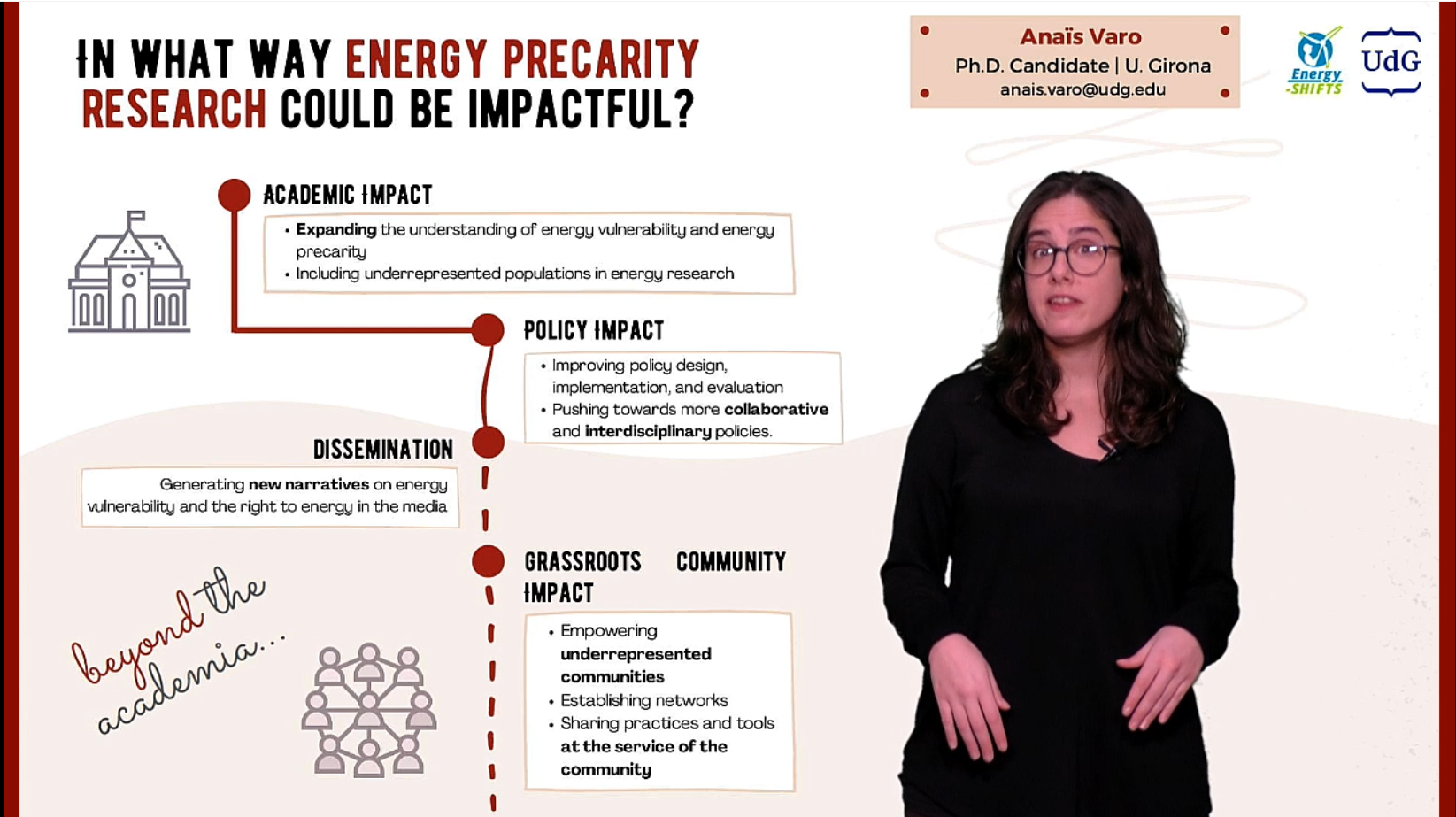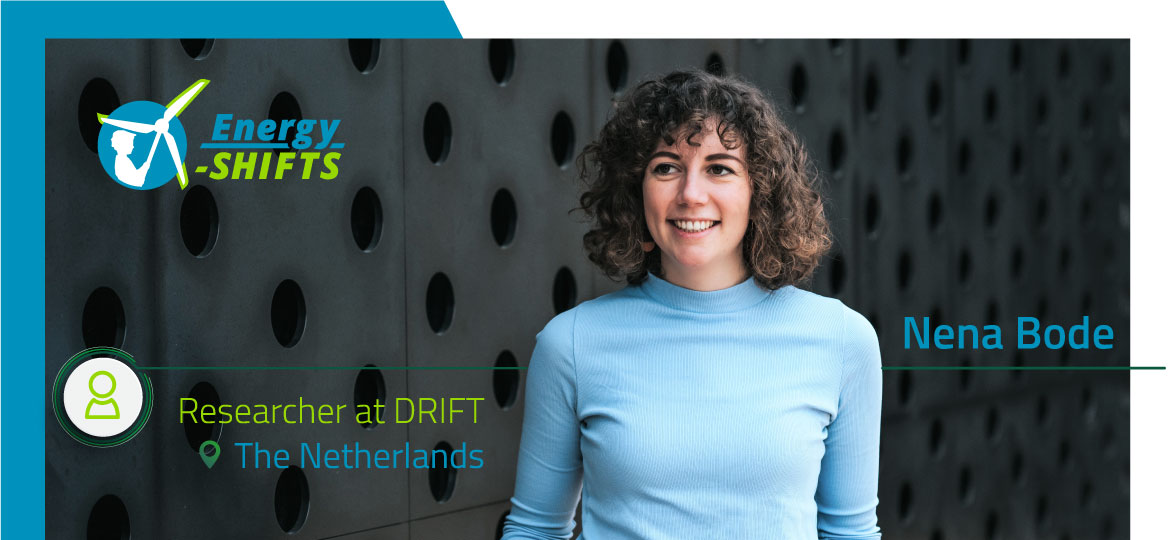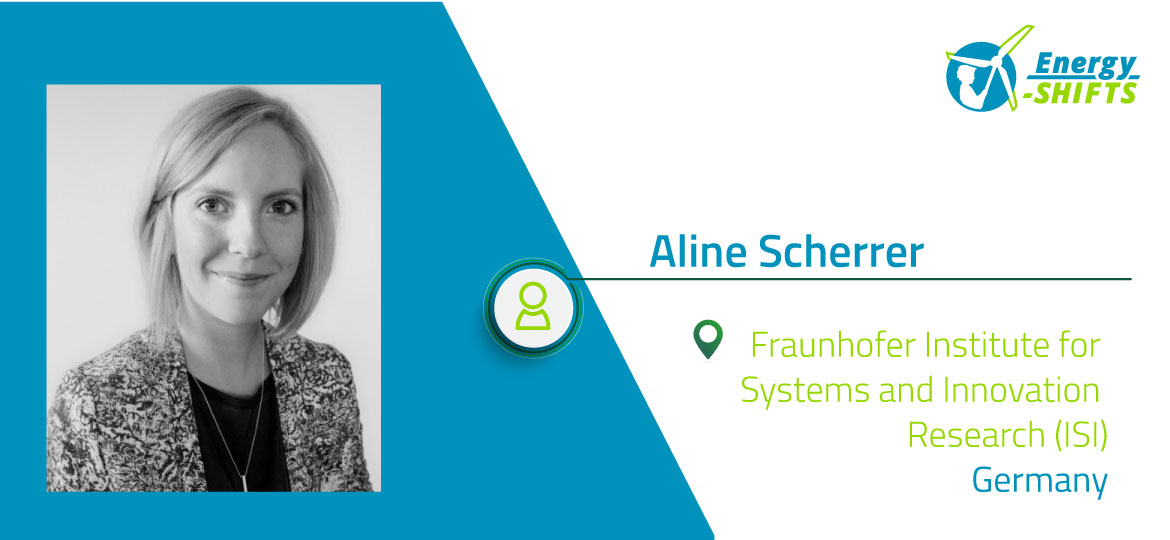Reflections of Energy-SHIFTS project | Rosie Robison – ARU
Inma Garrido2021-05-13T09:44:45+00:00In this interview, Energy-SHIFTS co-lead Dr. Rosie Robison looks back on the project and explains her lessons learnt on developing a EU funded project leading a team

